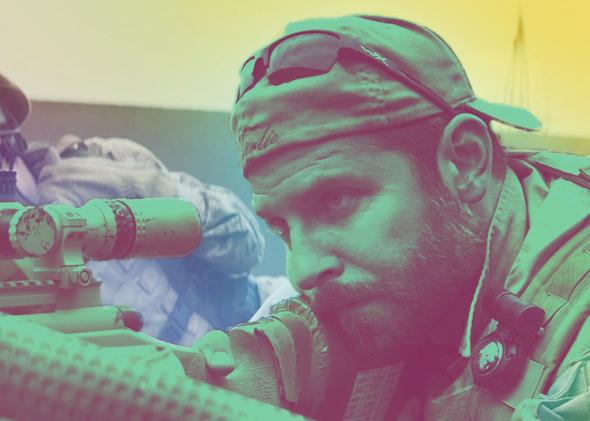The Movie Club is a weeklong conversation about the year in film. Read all the entries here.
Dana! My bad! We’ve made it nearly to the final round of this year’s Movie Club and I haven’t defended my adoration for The Grand Budapest Hotel. Please don’t throw my cat out the window, or make me write 100 explanatory haikus as punishment, none of which will measure up to Stephanie’s John Wick ballad, which I loved much more than the film.
I’ll defend it. But first, you’ve asked a question that I’m dying to discuss: the importance of truth in movies based on a true story.
Stephanie knows that I’m a huge research nerd. (The honest term is procrastinator.) I read a lot about the Mark Schultz story, and Foxcatcher changed heaps. For one, Mark and his brother Dave were never at John du Pont’s gym at the same time. For another, Du Pont was winding down a divorce. I understand why the filmmakers reunited the brothers—it ties together the story and highlights the contrast between Mark’s thickness and Dave’s charm. But rejiggering Du Pont’s sexuality, even if only by implication, is morally ickier, in part because his relationship with Mark is strong and interesting enough without implying he was gay.
I’m not knee-jerk against lying in biopics. One of my favorite moments of the year is young James Brown drawing strength in a fight by hallucinating music he won’t write for two decades. That embellishment has purpose: it underscores that James Brown is his own best champion.
But when critics catch a film in a lie, we have to ask it, “Why?” That’s what matters. Take American Sniper, one of the most mendacious movies of 2014. Clint Eastwood was caught in a trap: His subject, murdered Navy SEAL Chris Kyle, lied a lot. In his autobiography, he said he killed two carjackers in Texas, sniped looters during Hurricane Katrina, and punched Jesse Ventura in the face. None of that was true. So Eastwood was stuck. Should he repeat Kyle’s lies as truth? Expose him as a liar? Instead, he pretended Kyle never claimed any of it, but when a film erases the fact that its subject was a fabricator, then that itself is a lie.
The falsehoods in American Sniper are dangerous because a lot of audiences leave the theater thinking that Chris Kyle was a role model. I’ve actually gotten emails from military vets who were also troubled by the film. A lot of them are even harsher on Kyle than I’m comfortable being, in part because I’ve never served and in part because I was once attacked by Glenn Beck’s online army after poking holes in Lone Survivor. But American Sniper convinces viewers that Chris Kyle is what heroism looks like: a great guy who shoots a lot of people and doesn’t think twice about it. Watching American Sniper, I kept wondering who Kyle himself had been imitating. Sylvester Stallone? John Wayne? Or the ultimate irony, Clint Eastwood himself as Dirty Harry?
Okay, time to eat 12 pink boxes of marzipan and readjust my mood.
I, too, was once as Dana wrote, “a Wes Anderson agnostic.” Maybe even worse. I despised The Darjeeling Limited—it was all fancy wallpaper and no social conscience. I sat down for The Grand Budapest Hotel expecting to be annoyed. But for the first time, Wes Anderson’s fancies have a purpose. He’s created this beautiful world and appointed Ralph Fiennes as its protector, but by setting it just before World War II, we know both hotel and man face their doom. In siding against the war, we, too, are forced to side with beauty—to defend extravagance against Nazism and, later, Communism (and its icky green redecorators) with the same fervor that Anderson himself has against the slapdash look of mumblecore and digital. Finally, he’s made a film about something larger than daddy issues, and in so doing, even made me slightly more empathetic toward his entire career.
And boy, that performance from Fiennes. It’s posh yet profane, cartoonish yet human. I want to see him on the Oscar list, but what a year of riches: Fiennes, Boseman, Eddie Redmayne, and my dark horse favorite, Jake Gyllenhaal for Nightcrawler. I suspect—though I hope I’m wrong—that Nightcrawler is too wicked and nasty for the academy. Their loss. Dan Gilroy’s savage skewering of the news media was such a delight, and I’d love to see Rene Russo and Riz Ahmed join Gyllenhaal on awards night. And I don’t even mind that Nightcrawler made my beloved neighborhood—a stretch of LA just south of Hollywood that I’ve dubbed North Koreatown—look like a violent ghetto. If you ever pilgrimage to that Chinese restaurant from the climax, look down. A boy once wrote my name there in concrete.
I wish Movie Club was as permanent. I’ve had so much fun with you guys this week, and can’t wait to run into David at Sundance. (Dana and Steph, I’ll make a special New York visit just for you.)
If the readers will indulge me one last plug as I’m getting dragged out the door: Watch a film called Nothing Bad Can Happen. It’s streaming online and it’s one of the best and most overlooked films of the year. The director, a young German named Katrin Gebbe, is the next Michael Haneke. I almost don’t want to tell you anything more about it, except that despite the film claiming it’s based on a true story, I couldn’t turn up any evidence to prove it—and I couldn’t care less.
Farewell, Dana, David, Stephanie (if those are your real names),
A
